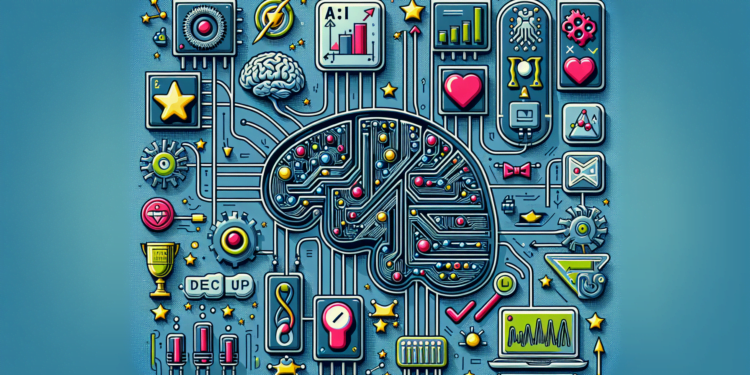In the realm of Artificial Intelligence (AI), Reinforcement Learning represents one of the pinnacles in the imitation of human cognitive processes by machines. Unlike other machine learning paradigms, reinforcement learning focuses on how agents should make decisions with the goal of maximizing some notion of cumulative reward. This technique finds its roots in optimal control theory and has been adapted and extensively explored in the fields of computer science and neuroscience.
Fundamental Concepts in Reinforcement Learning
Agent: A computational entity responsible for performing actions in an environment to achieve a goal. Its behavior is guided by a reinforcement learning algorithm that seeks to maximize the rewards received.
Environment: It is the space in which the agent executes actions and receives feedback through rewards or penalties. The environment can be as simple as a chessboard or as complex as an urban traffic simulator.
Reward: A numerical signal that the agent receives from the environment after executing an action. The agent’s goal is to maximize the sum of these rewards when making decisions.
Policy: The strategy that the agent uses to decide which action to take in a given state. A policy can be deterministic or stochastic.
Value Function: Measures how good a particular decision is for the agent in terms of the ultimate goal of maximizing the total reward.
Temporal Difference (TD) Learning: Methods that update value function estimates using the difference between consecutive estimates.
Key Algorithms in Reinforcement Learning
Q-learning: An off-policy TD Learning-based algorithm that learns which actions to take in different states by iteratively updating a Q-table, which stores utility values for action-state pairs.
SARSA (State-Action-Reward-State-Action): An on-policy reinforcement learning algorithm that updates the value function based on the action taken by the current policy, as opposed to Q-learning, which uses the best possible action.
Deep Q-Networks (DQN): Extend Q-learning by incorporating deep neural networks to approximate the value function, allowing the agent to handle high-dimensional states that would otherwise be unmanageable.
Policy Gradients: Methods that directly learn the optimal policy by optimizing parameters to maximize expected rewards. This method is particularly useful when the action space is continuous or very large.
Actor-Critic: Combines elements of policy gradients and value-based methods. It has two main components: the actor, which suggests actions, and the critic, which evaluates the actor’s suggestions.
Emerging Applications of Reinforcement Learning
Games: Since the success of AlphaGo defeating the world champion of Go, reinforcement learning algorithms have shown to outperform humans in highly strategic gaming environments.
Robotics: Robots trained through reinforcement learning can adapt to changing situations and perform complex tasks in the manufacturing, logistics, and space exploration industries.
Autonomous Vehicles: The dynamic nature and real-time decision-making required for autonomous driving make reinforcement learning a fundamental tool in the development of this technology.
Resource Management: Optimization of supply chains, energy management, and resource allocation in telecommunications networks are just a few examples where reinforcement learning can have a significant impact.
Challenges and Future Outlook
One of the greatest challenges of reinforcement learning is the need for large amounts of data for training, often unattainable in real-world environments. The creation of realistic simulators and the transfer of knowledge between different domains are active research areas to overcome this barrier.
Another issue lies in the safety and reliability of agents that learn through reinforcement. Safe learning methods are being investigated to ensure that agents behave appropriately even in unforeseen situations.
The field continues to evolve, and future research aims to improve algorithms to be more efficient, generalizable, and applicable in an even wider range of complex situations. With each advancement, reinforcement learning positions itself more firmly as a cornerstone in achieving truly autonomous and intelligent AI systems.
Conclusion
Reinforcement Learning is a fascinating discipline that pursues the frontier of what is possible in artificial intelligence, simulating how we learn as human beings through trial and error and the optimization of our actions based on the consequences we observe. Its potential to transform a variety of industries and research fields makes its study and development of utmost importance for the future of technology and society.






















